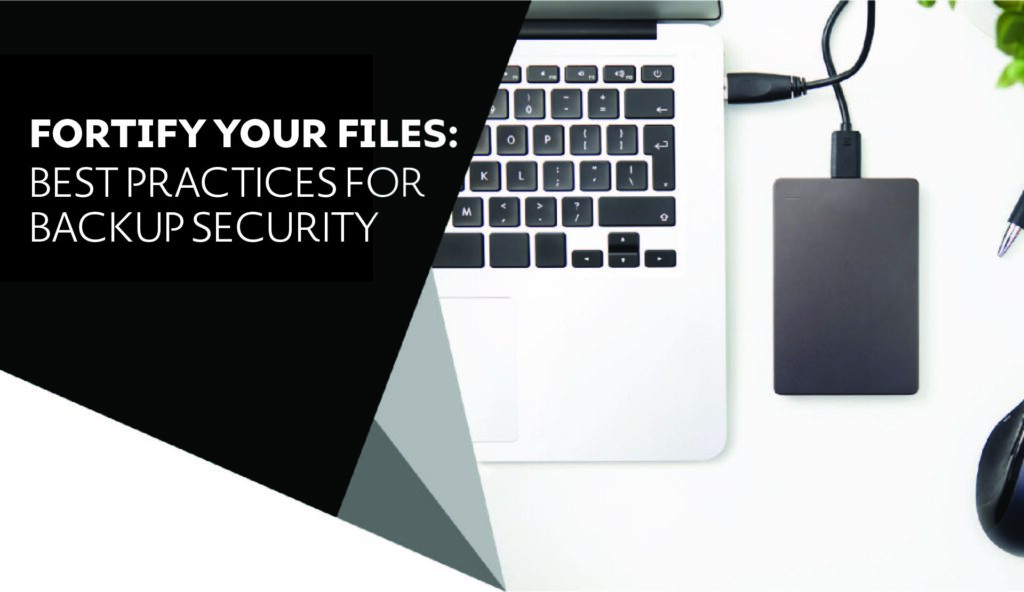We deal with data daily: from personal photos to work files. What happens if you lose that? How many hours of work will be lost?
Why Is Secure Backup Important?
Backing up will save your data from being lost forever. For example, all your computers get a virus or someone on the team accidentally deletes important files. If you do not have a backup, then you could lose everything. Backing up your data keeps it safe from these problems.
This is why it’s so important to continuously participate in securely backing up your data. Our expert team has put together a list of best practices to keep your data safe and secure.
How Often Should You Back Up Your Data?
It depends on how often your data changes. If you have important files that change daily, then you should back them up every day. Regular backups mean you will always have the latest version of your files. When we work with our Managed Service clients, we back up their data at least once a day, sometimes twice depending on the organization.
What Are The Different Types of Backups?
There are several types of backups you can use:
Full Backup
A full backup copies all your data. It takes more time and space but is very thorough.
Incremental Backup
An incremental backup only copies new or changed files since the last backup. It saves time and space. The downside is when this type of backup needs to be restored all the backups in the chain are needed.
Differential Backup
A differential backup copies all changes made since the last full backup. Periodically a new Full Back up would need to take place to be the base of the information and then the differential builds in the new and changed data. Making restores quicker than the other two back up options.
Forever Incremental
All in Technology recommends a hybrid backup model developed in partnership with Axcient that strategically optimizes data protection and recovery. This innovative approach eliminates the limitations of traditional incremental and differential backup methods by removing the need for periodic full backups and avoiding complex restoration requirements. The solution enables faster data recovery, reduces storage space consumption, and efficiently restores clients to their full operational potential with unprecedented agility and reliability.
Where to Store Your Backups?
The place of storage for your backups is an important consideration:
External Hard Drives
These are physical devices you can store at home or at work. It’s convenient, but they can get lost or damaged.
Cloud Storage
It keeps your backups online, keeping your data safe from physical damage, and is easily accessible from any location.
Offsite Storage
Offsite storage means keeping backups in a different location than your main data. This protects against theft or natural disasters.
But which is best?
All in Technology engineers recommend cloud-based data storage for our Managed Services clients. Cloud storage strategically eliminates the logistical challenges of manual offsite drive transportation by providing instant, location-independent data and backup access. This approach ensures organizations can rapidly restore systems, maintain business continuity, and retrieve critical information from any location with unprecedented speed and reliability. By implementing cloud storage solutions, companies can significantly enhance their data management efficiency and operational resilience.
How Can You Ensure Your Backups Are Secure?
Keeping your backups secure is as important as making them:
Use Encryption
Encryption scrambles your data so only you can read it. Keeping it safe from hackers.
Set Strong Passwords
Use strong passwords for all your backup accounts and devices. This prevents unauthorized access.
Regularly Test Your Backups
Testing ensures that your backups work properly. Try restoring a file to make sure everything is correct.
What Tools Can Help With Data Backup?
All in Technology strongly advises our managed clients to implement a dual-location data backup strategy. Based on extensive research, our engineers have identified Axcient as the most reliable solution for always-on backups, ensuring continuous data protection and business continuity.
What Should You Avoid In Data Backup?
Here are some of the common mistakes to avoid while backing up your data:
Not Having Multiple Copies
Always have more than one copy of your backup in different places.
Ignoring Security Updates
Keep all backup software and devices updated to protect against new threats.
Take Action To Protect Your Data NOW!
In the fast-paced world of business, data security isn’t optional—it’s essential. All in Technology partners with Axcient to deliver comprehensive data protection solutions that ensure rapid restoration, minimize storage requirements, and provide businesses with reliable, efficient backup strategies. This hybrid data backup model empowers organizations to safeguard their critical information, enabling operational continuity and resilience in an increasingly complex digital landscape
Act now to protect your business. Our expert team is ready to implement secure systems tailored to your needs, so you can focus on running your business with confidence. Don’t wait—contact All in Technology today and ensure your data is backed up and secure before it’s too late!
